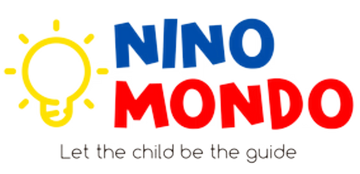
Your Simplified Montessori Glossary (not just Montessori toys)!
While many of you have heard about Montessori, very few actually know how hassle-free and simple it is. Yes, it is an educational philosophy that focuses on child-led, hands-on learning within a thoughtfully prepared environment, but at its core, there is much more than just Montessori toys.
It was developed by Dr. Maria Montessori, who highlighted that parents must respect a child’s natural development stages. They must build parenting in a gentle and simple manner that allows a child to be independent and intrinsically motivated. While Montessori has often been projected as a classroom method, it isn’t limited to only classroom education.
This is why we have very carefully curated this Montessori glossary for parents, especially busy ones, and it comprises much more than just Montessori toys. We have developed it specifically with beginners in mind so that you can have a holistic understanding of the Montessori method.

It is essential to understand Montessori terminology to understand Montessori from its core because each term reflects specific principles and practices that support a child’s growth. Let’s dig in:
A-C
- Absorbent Mind: A concept by Maria Montessori describing how children effortlessly absorb knowledge from their surroundings from birth to age 6.
- Autonomy: A core Montessori principle emphasizing the child’s ability to act independently and make choices.
- Bottles, Tweezers, and Tongs: Montessori tools that help develop fine motor skills in young children through practical life activities.
- Control of Error: Activities designed for children to independently correct their mistakes and learn from them to help them become confident.
- Concentration: Montessori encourages designing activities that help children build focus- an essential skill needed in life.
D-H
- Freedom within Limits: Children have the freedom to choose activities but within boundaries that ensure respect for others and the environment. This can include or not include Montessori toys.
- Grace and Courtesy: Lessons that teach social skills, such as saying “please” and “thank you,” waiting one’s turn, and expressing empathy.
- Hands-On Learning: The Montessori approach that allows children to engage in learning with tactile materials.
- Holistic Development: Montessori environments and activities are designed to nurture every aspect of a child—intellectual, emotional, social, physical, and spiritual.
I-M
- Independence: The Montessori method emphasizes allowing children to do things on their own as much as possible.
- Intrinsic Motivation: Montessori encourages children to learn and complete activities (not limited to Montessori toys) for their satisfaction rather than external rewards.
- Lifelong Love for Learning: Montessori aims to instil a deep, intrinsic motivation towards learning by making it joyful and self-directed. By following their interests in a supportive environment, children develop curiosity and enthusiasm for exploring new ideas, which they carry throughout life.
- Mixed-Age Settings: Montessori encourages having a 3-year age range in learning settings, allowing younger children to learn from older peers and older children to reinforce their knowledge.
N-P
- Observation: An essential skill for Montessori educators and parents to assess a child’s needs without interfering with their natural development.
- Prepared Environment: A thoughtfully organized space designed to facilitate independence, concentration, and growth.
- Practical Life Task: Everyday tasks (such as pouring, sweeping, or buttoning) that develop necessary motor skills and independence can be paired with Montessori toys designed for these activities.
Q-S
- Respect for the Child: A foundational Montessori principle that views each child as a unique individual with their own thoughts, feelings, and capacities. Montessori educators and parents are encouraged to listen to, observe, and support children respectfully without imposing external expectations.
- Sensitive Periods: Windows of time when a child is particularly ready to learn specific skills, such as language, order, or movement.
- Sensorial Materials: Materials that engage the senses, helping children refine perceptions of size, colour, texture, and sound. There are numerous Montessori toys that offer sensory experiences.
T-Z
- Three-Hour Work Cycle: A block of uninterrupted time, typically lasting three hours, allowing children to dive deeply into activities of their choice without interruption.
You can download our free e-book for more tips, tricks, and expert advice on Montessori.
